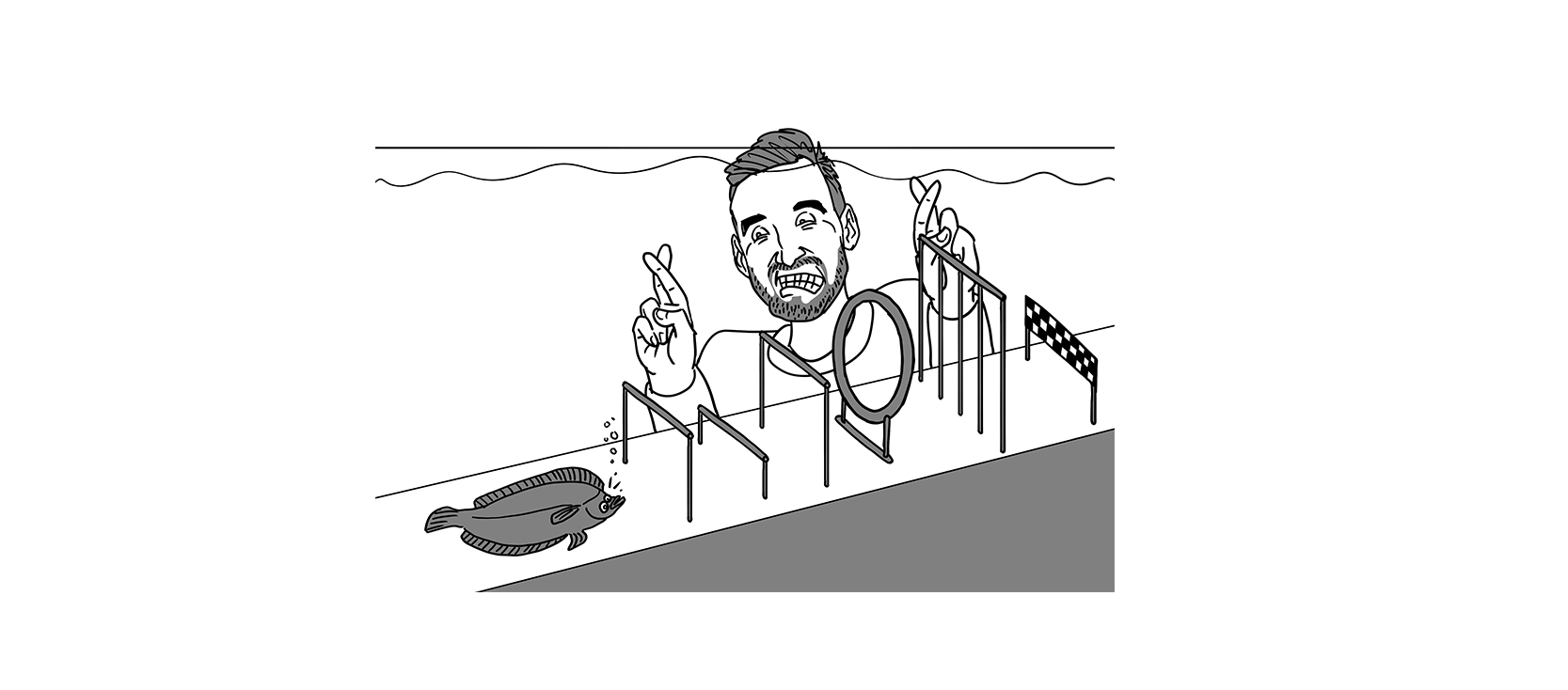A botched experiment, a rejected paper: such things are soon labelled as failures in academia. As for talking about them — not done! But that is just what WUR scientists do in this column. Because failure has its uses. This time, we hear from Alejandro Parodi Parodi, a postdoc in Farming Systems Ecology.
‘During my PhD, I studied the sustainability of farming black soldier fly larvae for feed and food. I wanted to know how much ammonia and greenhouse gases the larvae emit. To find this out, I reared the larvae in the respiration chambers at Carus, the experimental animal facility on campus. I could only use the chambers for a few weeks, so there was little room for mistakes. Moreover, my colleagues at Carus emphasized that I should be careful working with the high-grade equipment.
The two respiration chambers were metal containers the size of kitchen ovens, with a transparent lid on top. In each chamber, I stacked three crates with feed and ten thousand larvae the size of a rice grain. I carefully set up the first trial, sealed the chambers and left the lab as tidy as possible.
The next day, I looked through the lid. What had happened here? Thousands of larvae had escaped from the crates and were crawling everywhere inside the chambers. It was a mess. With a background in ecology and conservation, I had only done research in nature, where you have little control over anything. At Carus I was working with sealed, climate-controlled chambers, so I assumed nothing could go wrong.
Thousands of larvae had escaped from the crates and were crawling everywhere inside the chambers
When it did, my many insecurities as a starting PhD student came out: maybe I wasn’t good enough, I would fail, or disappoint others.
But when I told my supervisors what happened, they were able to laugh about it. I shouldn’t worry so much because these things happen. That helped me put things into perspective. In the following days, I solved the problem and successfully conducted the experiment after all. Looking back, it is fine to have expectations and healthy to worry when things work out differently. But worrying too much doesn’t help deal with an adversity once you see it ahead.’

 Illustration Stijn Schreven
Illustration Stijn Schreven 

